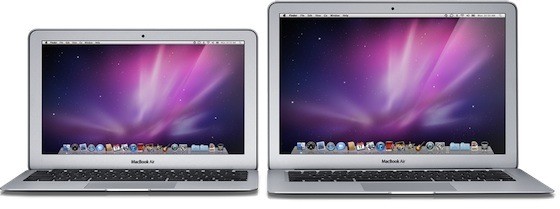Anandtech has run some speed tests on the two blade SSDs and found that the original Toshiba device with the model number TS128C has a read speed of 209.8 MB/second and a write speed of 175.6 MB/second. That’s slower than the newer Samsung SSD with the model number of SM128C. The Samsung SSD has read speeds of 261.1 MB/second and a write speed of 209.6 MB/second. While that read/write speed increase isn’t astonishingly faster, it is noticeable in real-world use. It’s also important to note that Anandtech can’t confirm that the newer SSD is manufactured by Samsung, but it is likely that is who makes it since Apple has used Samsung SSDs before and because the performance of the SSD matches Samsung’s 470 Series of blade SSDs.
So, how do you tell which blade SSD your MacBook Air is equipped with? Go to the Apple menu, and then select About This Mac. Click the More Info button to launch the System Profiler app, and then select Serial-ATA from the Contents source list. If you see Apple SSD SM128C you have the newer, faster Samsung blade SSD. If you see Apple SSD TS128C you have the older, slightly slower Toshiba blade SSD.
Source: tuaw.com
You May Like:
Anticipating a faster MacBook Air
Apple is giving a whole new meaning to locking your phone with its new screws
Mac OS X 10.6.5 Update Fixes MacBook Air Graphic Issues



